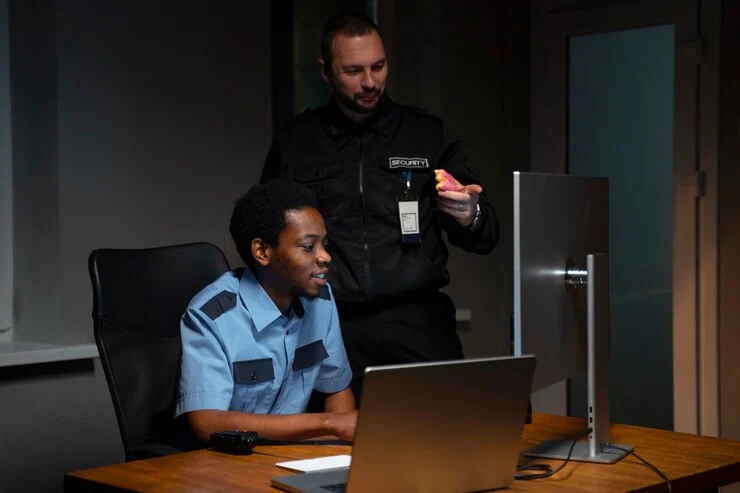In today’s digital age, ensuring that information is credible and reliable is more important than ever. The rise of online content, social media, and instant information sharing has made fact-checking and verifying sources a critical task. One term that has gained prominence in this context is the “citation police.” But what exactly does this mean? In this detailed article, we will dive deep into the concept of citation policing, its importance, and how it plays a role in both academic and digital environments.
Defining Citation Police
The term “citation police” generally refers to individuals, groups, or entities that are responsible for ensuring proper attribution and accuracy of sources in any published material. While the phrase can sometimes be used humorously, especially in academic or professional environments, it underscores the serious task of maintaining ethical standards in content creation. The role of citation policy is to check whether writers and publishers are properly citing their sources, giving credit where it’s due, and ensuring there’s no plagiarism or misrepresentation of facts.
The Importance of Citations in Academic Work
In the academic world, citations are fundamental. Proper citation allows others to trace the origin of ideas, research, or arguments back to their source. Not only does this give credit to the original creator, but it also enhances the credibility of the work being presented. When sources are improperly cited—or worse, not cited at all—it can lead to plagiarism, which is a severe ethical violation.
The “citation police” in this context could be educators, peer reviewers, or even academic institutions that enforce strict guidelines on how and when to cite sources in scholarly work. Failure to comply can result in penalties, ranging from poor grades to academic suspension.
The Role of Citation Police in Digital Content
In the age of digital media, content is created and shared at an unprecedented rate. Blogs, websites, social media posts, and even videos now rely heavily on accurate information to establish trust and authority. The citation police in this context often refer to fact-checkers, digital editors, or even readers who hold publishers accountable for the accuracy of their sources.
Citing sources in digital content isn’t just about avoiding plagiarism; it’s about building trust. A well-referenced article will hold more credibility with readers, and it is also more likely to perform well in search engine rankings. Proper citations help establish authority in your niche, making your content more reliable and reputable.
Avoiding Plagiarism: A Key Task for Citation Police
One of the core tasks of citation police—whether in academia or digital media—is to prevent plagiarism. Plagiarism occurs when someone presents another’s ideas, work, or research as their own without proper acknowledgment. This is considered intellectual theft and is taken very seriously by academic institutions and online platforms alike.
There are different types of plagiarism, including:
Direct plagiarism: Copying text verbatim without proper citation.
Paraphrasing plagiarism: Rewording someone else’s ideas without crediting them.
Self-plagiarism: Reusing your previous work without giving proper acknowledgment or referencing the source.
The citation police ensure that these practices are avoided and that all sources are appropriately credited, allowing for a more transparent and ethical creation of content.
The Benefits of Proper Citation Practices

Proper citation practices come with numerous benefits:
Enhanced credibility: When you back up your arguments with credible sources, your audience will trust your work more.
Search engine optimization (SEO): Proper citations, especially linking to authoritative sources, can improve your site’s search rankings.
Legal protection: Citing your sources properly can help you avoid copyright infringements and potential legal issues.
For these reasons, the citation police play a vital role in ensuring the integrity of online and offline publications.
Citation Police in Social Media: A Growing Trend
Social media platforms are not exempt from the watchful eyes of the citation police. With the rapid spread of misinformation, many platforms have started implementing fact-checking systems to verify the credibility of posts. Users can flag posts that contain questionable or misleading information, and the platform’s moderators or third-party fact-checkers step in to evaluate the content.
The role of citation police in social media is critical, especially when it comes to health information, political statements, and other sensitive topics where misinformation can have serious consequences.
Tools Used by Citation Police
With the vast amount of information available online, manually verifying sources can be overwhelming. Thankfully, several tools assist the citation police in their task. These include:
Plagiarism detection tools such as Turnitin, Copyscape, and Grammarly, are designed to detect duplicated content and improper citations.
Fact-checking platforms like Snopes and FactCheck.org, help verify the accuracy of statements and claims.
Citation management tools such as Zotero and EndNote, make it easier for writers to keep track of their references and cite them properly.
These tools are indispensable in ensuring that content is both accurate and properly attributed.
Citation Formats and Styles
To make sure citations are consistent and clear, different fields have their preferred citation styles. The most commonly used citation formats include:
APA (American Psychological Association): Frequently used in social sciences.
MLA (Modern Language Association): Common in the humanities.
Chicago/Turabian Style: Used in history, literature, and arts.
Harvard Style: Popular in many academic institutions worldwide.
The citation police ensure that whichever style is being used, it is applied consistently throughout the work, helping to maintain professional and academic standards.
The Future of Citation Police in AI-Driven Content
As AI continues to advance, more content is being produced with minimal human intervention. This has introduced new challenges for the citation police. AI-generated content often lacks proper citation and attribution, which raises concerns about the accuracy and ethicality of the information being shared.
Citation police will need to adapt to these changes by ensuring that even AI-driven content adheres to proper citation standards. This may involve the development of AI tools specifically designed to check for citations in machine-generated texts.
How to Be Your Citation Police
Whether you’re an academic, a blogger, or a social media influencer, it’s essential to take on the role of the citation police yourself. Here’s how you can ensure that your content meets proper citation standards:
Always give credit: When using someone else’s work, ideas, or research, cite your sources properly.
Use plagiarism detection tools: These tools can help ensure that you aren’t unintentionally copying someone else’s work.
Check your facts: Make sure the information you’re sharing is accurate and comes from reputable sources.
Use proper citation formats: Whether you’re writing an academic paper or a blog post, use the appropriate citation style for your field or audience.
Conclusion: The Vital Role of Citation Police in Modern Content
In today’s world of rapid information sharing, the role of citation policy is more critical than ever. Whether in academic settings, digital content, or social media, ensuring that sources are properly credited and information is accurate helps maintain ethical standards and build trust. With the aid of tools and technology, both individuals and institutions can uphold these standards, contributing to a more transparent and reliable information ecosystem.
